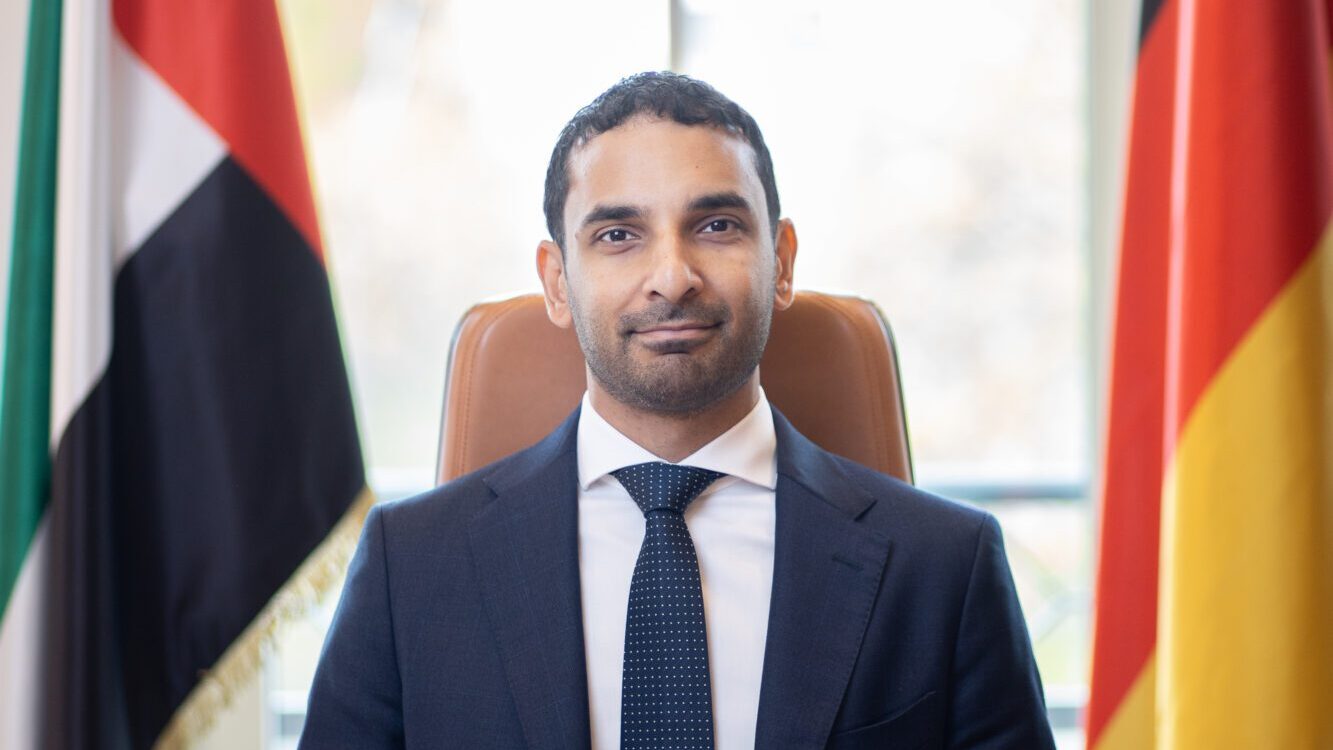
Ahmed Alattar
Photo by UAEBerlin Media, CC BY-SA 4.0
The United Arab Emirates Ambassador to Germany, Ahmed Alattar, denounced last weekend’s Islamist demonstration in Hamburg where over a thousand radically anti-German Muslims gathered and called for the introduction of Sharia law and an Islamic state, among other demands.
The demonstration’s organizers are closely associated with the “confirmed extremist movement” ‘Muslim Interaktiv.’ Its slogans calling Germany a “dictatorship of values” rang out, accompanied by “Allahu Akbar!” (God is great) chants. Most disturbingly, as The European Conservative reported, at least one placard read “a caliphate is the solution.”
Taking to the social media platform X to express his dismay, Alattar, said he found it “unbelievable, unacceptable, and incomprehensible” that people who’ve “found a home in Germany are turning against Germany,” but added he wasn’t especially taken aback by it since this behavior is “typical of political Islamists.”
Alattar’s concern echoes that of the Emirati Minister of Foreign Affairs. In 2017, Abdullah bin Zayed Al Nahyan identified Europe’s Islamism problem as being due to its leaders’ indecisiveness, political correctness, and overconfidence in their understanding of Islam.
The ambassador’s sharp criticism of the demonstration and its participants stands in stark contrast with the rather tepid response from Germany’s left-activist interior minister, who told Der Tagespiegel the demonstration was “difficult to bear,” while refraining from addressing its anti-democratic, extremist character.
Faeser’s lackluster response to the demonstration—uniformly regarded as grossly inadequate by Germany’s right-of-center opposition—has prompted calls from the Values Union, Alternative for Germany, and the CDU for her immediate resignation.
Values Union chairman Hans-Georg Maaßen, who formerly served as the head of the Office for the Protection of the Constitution (BfV), castigated Faeser for shrugging off an “attack on the free democratic basic order” and refusing to “protect Germany from the enemies of the constitution.”
The interior minister, Maaßen continued, is therefore “a danger to the free democratic basic order and to Germany.” Chancellor Scholz should “finally remove this woman” from her position, he demanded.
Criticism from the AfD was every bit as scathing. The party’s Deputy Federal Spokesman Stephan Brandner wrote:
While Interior Minister Faeser focuses exclusively on the so-called “fight against the right,” Islamist groups dream of revolution. They are making plans for a ‘German caliphate’ and are openly spreading their propaganda.
Such propaganda events [calling for] dictatorship and terror are not only a disgrace but above all a danger for Germany. Anyone who does not want to acknowledge this and take decisive action against it should leave the minister’s chair as quickly as possible.
CDU General Secretary Carsten Linneman, meanwhile, slammed Faeser for failing abysmally to “realize the great danger that radical Islamic movements pose to German society,” calling it “scandalous” that the demonstration was allowed to materialize despite the minister’s “full-throated announcements that something like this would not be tolerated.”
The warning from UAE’s ambassador to Germany concerning the grave dangers posed to the West by political Islam is not the first to be delivered by high-ranking diplomats from the Arab country, which itself has enshrined Islam—albeit in a more tolerant form—as the State religion and the principal source of its legislation.
7 years ago, the UAE’s Foreign Minister issued a warning to the West.
— Visegrád 24 (@visegrad24) April 19, 2024
His words now sound prophetic.pic.twitter.com/JLYcABVH31
Speaking in 2017 at the Tweeps Forum in Riyadh, the UAE’s Foreign Minister Abdullah bin Zayed Al Nahyan warned of the problems now facing much of Europe:
There will come a day when we will see far more radicals, extremists and terrorists coming out of Europe because of a lack of decision-making, trying to be politically correct, or assuming that they [European leaders] know the Middle East, that they know Islam, that they know the others far better than we do. And I’m sorry but that’s pure ignorance.
